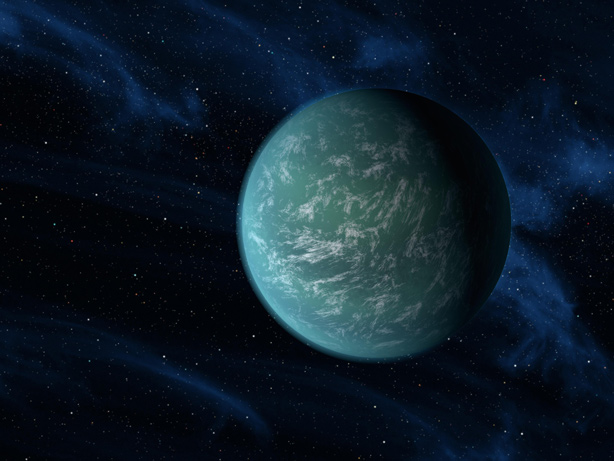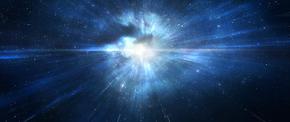The views expressed in our content reflect individual perspectives and do not represent the authoritative views of the Baha'i Faith.
In the last installment of this series of articles exploring the arguments for the existence of God, we took a look at the concept of the “finely-tuned universe,” which states that the universe must have been fine-tuned by a Creator in order for life to exist. But some scientists call this idea “carbon chauvinism,” saying that the finely-tuned universe theory only allows for carbon-based life as the sole possibility we can imagine. And others see the fine-tuning argument as a kind of immodest hubris, an anthropocentric position, with its belief that human life is the only purpose for the entire universe. Not many theologians have responded to these criticisms of the finely-tuned theory – but the Baha’i Faith, in its teachings, opens up an entirely new religious viewpoint on this important issue. First, Baha’is believe that God’s creation goes far beyond the limits of the Earth. Baha’u’llah clearly said, in response to a question about the planets, that life on other planets was not only a possibility but a reality:
Thou hast, moreover, asked Me concerning the nature of the celestial spheres. To comprehend their nature, it would be necessary to inquire into the meaning of the allusions that have been made in the Books of old to the celestial spheres and the heavens, and to discover the character of their relationship to this physical world, and the influence which they exert upon it. Every heart is filled with wonder at so bewildering a theme, and every mind is perplexed by its mystery. God, alone, can fathom its import. The learned men, that have fixed at several thousand years the life of this earth, have failed, throughout the long period of their observation, to consider either the number or the age of the other planets. Consider, moreover, the manifold divergencies that have resulted from the theories propounded by these men. Know thou that every fixed star hath its own planets, and every planet its own creatures, whose number no man can compute. – Baha’u’llah, Gleanings from the Writings of Baha’u’llah, p. 162.
In this passage Baha’u’llah calls into question the idea that the Earth is only “several thousand years” old, the theory commonly known as creationism today. While Baha’is accept the Bible and its teachings, Baha’is view those teachings as largely metaphorical and symbolic – not as scientific truth. Baha’is emphatically reject the literalist reading of the Bible that results in declarations by creationists that the Earth is 6,000 years old. Here, Abdu’l-Baha explains:
This divine sovereignty is not to be measured by six thousand years. This interminable, illimitable universe is not the result of that measured period. This stupendous laboratory and workshop has not been limited in its production to six thousand revolutions of the earth about the sun. With the slightest reflection man can be assured that this calculation and announcement is childish, especially in view of the fact that it is scientifically proved the terrestrial globe has been the habitation of man long prior to such a limited estimate. As to the record in the Bible concerning Adam’s entering paradise, His eating from the tree and His expulsion through the temptation of Satan: These are all symbols beneath which there are wonderful and divine meanings not to be calculated in years, dates and measurement of time. Likewise, the statement that God created the heaven and the earth in six days is symbolic…. When man casts even a cursory glance of reflection upon the question of the universe, he discovers it is very ancient. – Abdu’l-Baha, The Promulgation of Universal Peace, p. 218.

Illustration of Kepler 22B one of the “Goldilocks Planets”
So this ancient universe, the Baha’i teachings say, supports living creatures throughout its billions of galaxies. Modern science has just begun to develop the ability to discover exo-planets in the habitable zone of their respective solar systems, the so-called “Goldilocks planets” that are not too hot and not too cold, but instead just right for life as we know it to exist. In fact, last year scientists reporting on the Kepler Space Mission announced that there could be many as 40 billion Earth-sized planets orbiting in the habitable zones of Sun-like stars — in our Milky Way galaxy alone. Baha’is believe that God has created life throughout the universe; and that the perfect beauty, order and symmetry of the universe exhibits the existence of a motive force, a Creator, a First Cause.

















Comments
Sign in or create an account
Continue with Facebookor